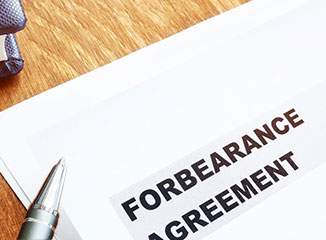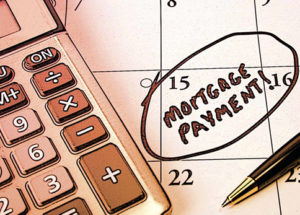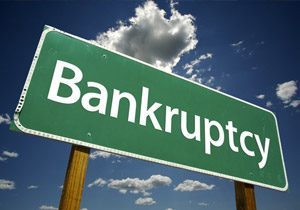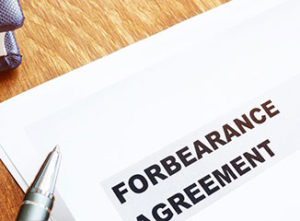COVID-19 Financial Help Programs in New Jersey:
About Bankruptcy, Foreclosures, and Mortgage Forbearance
Mortgage Forbearance
Federal Mortgage Forbearance Programs
 In recent weeks, on a federal level, the Coronavirus Aid, Relief, and Economic Security Act (CARES) Act has put into place a right to forbearance for homeowners who are experiencing a financial hardship due to the COVID-19 Emergency.
In recent weeks, on a federal level, the Coronavirus Aid, Relief, and Economic Security Act (CARES) Act has put into place a right to forbearance for homeowners who are experiencing a financial hardship due to the COVID-19 Emergency.
Forbearance is when your mortgage lender allows for a pause on payments or a significant reduction in payment for a limited period of time. The CARES Act forbearance program applies only to federally backed mortgages. If you are currently unable to make your mortgage payments due to COVID-19 related hardship, then forbearance could make sense for you.
If you wish to apply for a federal mortgage forbearance program, you will need to contact your mortgage lender directly. Your mortgage lender (servicer) is the company that sends you mortgage statements each month. Not surprisingly, wait times to speak with a representative have been quite lengthy
Monmouth County New Jersey Mortgage Forbearance Programs
For Monmouth County residents, Governor Murphy has announced Residential Mortgage Relief due to the financial impact of COVID-19. Citigroup, JP Morgan Chase, US Bank, Wells Fargo, and Bank of America, in addition to 40 other mortgage companies are offering mortgage forbearance programs and relief. This relief applies to all New Jersey residents. You must contact your mortgage lender to apply for this relief. It is not automatic. The measures went into effect as of March 28, 2020. In addition, the measures only apply to residential mortgages.
Here are the specifics for New Jersey residents:
- A 90 day grace period (forbearance) on your monthly mortgage payment. During the forbearance, you will not be charged late fees and charges.
- No new foreclosure actions will be filed in the State Superior Courts.
- While you are in forbearance, late or missed payments will not be shared with credit reporting agencies.
Beware: What Happens at the End of the Forbearance Period
 There is a huge caveat to all mortgage forbearance programs. Let’s say that your mortgage lender has qualified you for a forbearance program. And let’s say that your mortgage lender will put you into forbearance so that you do not have to make your next 4 mortgage payments. At the end of the 4 month forbearance period, all of your back mortgage payments are immediately due. Generally, if you were unable to make 4 mortgage payments, at the end of the forbearance term, you will not have the funds to pay the back payments in full. You are at immediate risk of being sued for foreclosure. Your mortgage lender will file a foreclosure complaint in the State Superior Court, Chancery Division in Monmouth County, Middlesex County, Ocean County, or your applicable county Superior Court. Once a foreclosure complaint is filed, you are hurtling towards a sheriff sale and loss of your home if the foreclosure complaint is not answered or another solution is reached such as a Chapter 13 Bankruptcy. More on Chapter 13 Bankruptcy in short order.
There is a huge caveat to all mortgage forbearance programs. Let’s say that your mortgage lender has qualified you for a forbearance program. And let’s say that your mortgage lender will put you into forbearance so that you do not have to make your next 4 mortgage payments. At the end of the 4 month forbearance period, all of your back mortgage payments are immediately due. Generally, if you were unable to make 4 mortgage payments, at the end of the forbearance term, you will not have the funds to pay the back payments in full. You are at immediate risk of being sued for foreclosure. Your mortgage lender will file a foreclosure complaint in the State Superior Court, Chancery Division in Monmouth County, Middlesex County, Ocean County, or your applicable county Superior Court. Once a foreclosure complaint is filed, you are hurtling towards a sheriff sale and loss of your home if the foreclosure complaint is not answered or another solution is reached such as a Chapter 13 Bankruptcy. More on Chapter 13 Bankruptcy in short order.
There is no automatic right to have back mortgage payments tacked onto your mortgage. Despite what you may read or what a customer service person from your mortgage lender may tell you on the phone. Remember, customer service representatives from all mortgage companies are following a script. They cannot advise you on your legal rights to keeping your home and applying for forbearance. After a forbearance, you must apply for a loan modification. There is absolutely no guarantee that your lender will modify your mortgage. Despite what your lender tells you or what you may read on the internet or hear from a friend, there are no federal laws, state laws, or case law that requires your lender to modify your mortgage and simply add the back payments to the end of your mortgage while you resume making your regular monthly payment when you can afford to do so.
Remember, your mortgage is an agreement recorded in your local county Hall of Records. If I go to the Monmouth County Hall of Records in Freehold and look at your mortgage, the terms are set forth and recorded in the public record. For example, that you took out a 30 year mortgage in 2015 with a fixed interest rate, taxes and insurance escrowed in the monthly payment. The mortgage must be modified after a forbearance, and you can risk unfavorably changing the terms of your mortgage or worse, losing your home by being denied for a mortgage modification.
I have done hundreds of successful loan modifications since the financial collapse in the fall of 2009. Regulations regarding loan modifications have not changed. And will not change. Mortgages are bundled together into securities, and sold as investments to large institutional investors. Every mortgage has different qualification guidelines. These qualification guidelines are extremely nuanced. Using the Consumer Financial Protection Regulations (CFPB), I can determine with specificity whether or not you should qualify for a mortgage modification. And then, prepare a mortgage modification application to guarantee that you are reviewed property for a loan modification. The paperwork looks deceptively simple. Fill out your income and expenses, send in a hardship letter, some bank statements, pay statements or a profit and loss if you are self-employed, and a utility bill. However, without a loan modification analysis of the type I have been doing for over 12 years, you will bungle your chances at a loan modification, and can be denied permanently for a loan modification if your first one was done incorrectly.
In addition, with a loan modification, what if you had 10, 15, 20 years left on your mortgage? If your loan is modified, you will end up with a new mortgage term, generally in the 30+ year range. And no reduction in mortgage payment, or a slight reduction, say $100.00 or so. In some cases, such as where you are only several months to a year behind on your mortgage payments, a mortgage modification may not make any sense after a forbearance.
Remember, if you qualify for a loan modification, the lender picks the terms. You do not get to pick them. With a loan modification feasibility analysis, I can tell you with certainty what programs your loan should be considered for, what the modified terms should look like, and prepare your application in a way to present your income and expenses so that you qualify for a loan modification.
Applying for a mortgage modification makes sense under the following scenarios:
- There has been a feasibility analysis done on your mortgage. I know with certainty what you will qualify for, and that in the big picture it will allow you to remain in your home, put the missed mortgage payments on the back end of your mortgage, and allow you to afford to make your mortgage payments comfortably.
- You have more mortgage arrears than you can afford to amortize and catch up on over 36-60 months in a Chapter 13 Bankruptcy. I have had great success with clients who have substantial mortgage arrears, arrears well into the several hundred thousand dollar range or more, whose only viable option to stay in the home is a perfectly analyzed and prepared mortgage modification. It works as long as I do a feasibility analysis on your mortgage and proceed accordingly.
Chapter 13 Bankruptcy and Mortgage Forbearance

For now, if you cannot afford your mortgage payment, give a forbearance program a shot or simply don’t make the mortgage payment. For most of my clients, I am there to guide them through this entire process, from when they are about to miss their first mortgage payment, falling behind, and having a rock solid plan to get them current on their mortgage and back in good standing with their mortgage lender.
I want to outline your next steps once you can afford to resume making regular mortgage payments but are not current on your mortgage payment and have mortgage arrears.
Ok, so you, like so many others, have taken a forbearance program and are 4 months, 6 months, a year behind on your mortgage. Perhaps before you fell onto COVID-19 related hardship, and hardship related to our current economic situation. Chapter 13 is a tried and true, cost effective mechanism to consider you current on your mortgage immediately, stop foreclosure, interest, and late fees, and get you caught up on the back payments.
When a Chapter 13 Bankruptcy is filed, your mortgage lender is required to start accepting your regular contractual payment again and must consider you current on your mortgage. When the 13 is filed, you are under the protection of the federal bankruptcy laws. Federal bankruptcy laws stop all collection and foreclosure efforts. On your end, your back mortgage payments are amortized out over 36-60 months and you must pay back the mortgage payments in equal monthly installments.
Chapter 13 works where you have good steady income to make your regular mortgage payment on time each month and amortize the mortgage arrears out over up to 60 months. It can also be an effective mechanism to sell your home if you are in foreclosure, want to avoid a sheriff sale, recapture equity, and payoff debts.
Chapter 13s are my bread and butter. I have been working on Chapter 13 cases since the early 2000s and have overseen thousands of successful cases. I am thrilled when my clients can successfully reorganize through a Chapter 13 and save their home and other assets.
Foreclosures
On a local level, there is a moratorium on foreclosures in the State Superior Court. As a Monmouth County resident, until further notice, foreclosure sales are stopped.
CARES Act and Changes to the Bankruptcy Code
Specifically, the CARES Act addresses individuals in existing Chapter 13 Bankruptcy Plans. In a Chapter 13 Bankruptcy, you have monthly payments for 36-60 months through the bankruptcy trustee. If you are suddenly unable to make your trustee payments and/or ongoing payments such as car payments and mortgage payments, contact me.
Federally, the CARES Act says that if a Chapter 13 Bankruptcy Case has already been confirmed (signed off on by the bankruptcy judge) and if the individual is experiencing COVID-19 related hardship, their plan payments can be extended to up to 7 years or 84 months.
For Monmouth, Ocean, and Middlesex County residents, our Federal Bankruptcy Court vicinage is Trenton. In Trenton, under the CARES Act, our bankruptcy trustees and judges are leaning towards extension to 72 months. Keep in mind, to modify and extend a plan term, your financial hardship must be demonstrated to the court to be connected to COVID-19 with specification in a signed and sworn Certification with supporting documentation.
In many cases, if you are unable to afford your ongoing obligations such as your mortgage payment, and your Chapter 13 Plan payment, it may be most advantageous to simply file a new Chapter 13 instead of trying to right a sinking ship, or exacerbate financial hardship. It is so case by case, let’s discuss one on one.
Why Now Might Be the Perfect Time to File Bankruptcy
 In Chapter 7 Bankruptcy, you can keep your home, assets, cash in the bank, and qualified retirement accounts while being discharged (forgiven) of all credit card debts, personal loans, unsecured loans, and so forth. One qualifier for Chapter 7 Bankruptcy, as set forth under the federal bankruptcy code, with local nuances which apply for residents of Monmouth, Ocean, and Middlesex Counties in the Trenton vicinage of the federal bankruptcy court, is a lookback period at your past 6 months of income. Please do not try it at home. There are too many local nuances in the Trenton vicinage for you to determine on your own if you qualify for a Chapter 7 based on your income.
In Chapter 7 Bankruptcy, you can keep your home, assets, cash in the bank, and qualified retirement accounts while being discharged (forgiven) of all credit card debts, personal loans, unsecured loans, and so forth. One qualifier for Chapter 7 Bankruptcy, as set forth under the federal bankruptcy code, with local nuances which apply for residents of Monmouth, Ocean, and Middlesex Counties in the Trenton vicinage of the federal bankruptcy court, is a lookback period at your past 6 months of income. Please do not try it at home. There are too many local nuances in the Trenton vicinage for you to determine on your own if you qualify for a Chapter 7 based on your income.
In a time of economic upheaval such as this, if your income has dropped, it may be an unprecedented time for you to be able to qualify for a Chapter 7 Bankruptcy, wipe out all of your credit card debts, unsecured lines of credit, personal loans, and medical debts, and keep your assets. Let’s discuss.
Paying Your Mortgage During the COVID-19 Pandemic
Are you able to afford to continue making your mortgage payments on an ongoing basis during COVID-19? If so, do so. Forbearance as I have discussed above, has serious implications, including the potential to lose your home. There is no advantage to a forbearance if you can afford your mortgage payment.
Financial Aid vs. Bankruptcy Relief – How to Decide
At present, the CARES Act is providing loans to small businesses, and unemployment benefits have been extended. There is no financial aid available for credit card debts, personal loans, and other unsecured debts. Unsecured debts are not attached to an asset (such as a home or car).
You can make the decision to apply or not to apply for a mortgage forbearance. It makes the most sense for us to do this together and come up with a concrete plan of action. While you are in forbearance, I can do the extensive research to see what your likelihood of a loan modification is and what the terms will look like. Together, we can decide how to get you current once you have steady income again.
If you had substantial revolving credit card debt before the financial crisis, unsecured debt, personal loans, and medical debt, your options remain as they always were. Deciding between bankruptcy and debt management. In short, and as I have discussed at length in the past, debt management is a scam which guarantees you nothing but the false sense of security that your debts are being handled. Debt management does not work for the following reasons: No guarantee your creditors will abide by any long-term settlement agreements, you pay taxes on the amount of debt that is forgiven, your creditors can still sue you during debt management.
If you find yourself unable to meet your monthly payment obligations on credit cards, unsecured debts, personal loans, and so forth, at the very least we should discuss how bankruptcy could help you eliminate all or most of your debt.
Consult with an Experienced Monmouth County Bankruptcy Attorney
There is no substitution for extensive bankruptcy law experience, passion to help and work with clients, and an excellent reputation in the bankruptcy court, with mortgage lenders, and the bankruptcy trustees. I have handled thousands of bankruptcy cases in Monmouth County over a period of over 15 years. I look forward to starting a conversation with you and helping you through this difficult time. Hang in there!
COVID-19 Financial Help Programs in New Jersey:
About Bankruptcy, Foreclosures, and Mortgage Forbearance
Mortgage Forbearance
Federal Mortgage Forbearance Programs
In recent weeks, on a federal level, the Coronavirus Aid, Relief, and Economic Security Act (CARES) Act has put into place a right to forbearance for homeowners who are experiencing a financial hardship due to the COVID-19 Emergency.

Forbearance is when your mortgage lender allows for a pause on payments or a significant reduction in payment for a limited period of time. The CARES Act forbearance program applies only to federally backed mortgages. If you are currently unable to make your mortgage payments due to COVID-19 related hardship, then forbearance could make sense for you.
If you wish to apply for a federal mortgage forbearance program, you will need to contact your mortgage lender directly. Your mortgage lender (servicer) is the company that sends you mortgage statements each month. Not surprisingly, wait times to speak with a representative have been quite lengthy
Monmouth County New Jersey Mortgage Forbearance Programs
For Monmouth County residents, Governor Murphy has announced Residential Mortgage Relief due to the financial impact of COVID-19. Citigroup, JP Morgan Chase, US Bank, Wells Fargo, and Bank of America, in addition to 40 other mortgage companies are offering mortgage forbearance programs and relief. This relief applies to all New Jersey residents. You must contact your mortgage lender to apply for this relief. It is not automatic. The measures went into effect as of March 28, 2020. In addition, the measures only apply to residential mortgages.
Here are the specifics for New Jersey residents:
- A 90 day grace period (forbearance) on your monthly mortgage payment. During the forbearance, you will not be charged late fees and charges.
- No new foreclosure actions will be filed in the State Superior Courts.
- While you are in forbearance, late or missed payments will not be shared with credit reporting agencies.
Beware: What Happens at the End of the Forbearance Period

There is a huge caveat to all mortgage forbearance programs. Let’s say that your mortgage lender has qualified you for a forbearance program. And let’s say that your mortgage lender will put you into forbearance so that you do not have to make your next 4 mortgage payments. At the end of the 4 month forbearance period, all of your back mortgage payments are immediately due. Generally, if you were unable to make 4 mortgage payments, at the end of the forbearance term, you will not have the funds to pay the back payments in full. You are at immediate risk of being sued for foreclosure. Your mortgage lender will file a foreclosure complaint in the State Superior Court, Chancery Division in Monmouth County, Middlesex County, Ocean County, or your applicable county Superior Court. Once a foreclosure complaint is filed, you are hurtling towards a sheriff sale and loss of your home if the foreclosure complaint is not answered or another solution is reached such as a Chapter 13 Bankruptcy. More on Chapter 13 Bankruptcy in short order.
There is no automatic right to have back mortgage payments tacked onto your mortgage. Despite what you may read or what a customer service person from your mortgage lender may tell you on the phone. Remember, customer service representatives from all mortgage companies are following a script. They cannot advise you on your legal rights to keeping your home and applying for forbearance. After a forbearance, you must apply for a loan modification. There is absolutely no guarantee that your lender will modify your mortgage. Despite what your lender tells you or what you may read on the internet or hear from a friend, there are no federal laws, state laws, or case law that requires your lender to modify your mortgage and simply add the back payments to the end of your mortgage while you resume making your regular monthly payment when you can afford to do so.
Remember, your mortgage is an agreement recorded in your local county Hall of Records. If I go to the Monmouth County Hall of Records in Freehold and look at your mortgage, the terms are set forth and recorded in the public record. For example, that you took out a 30 year mortgage in 2015 with a fixed interest rate, taxes and insurance escrowed in the monthly payment. The mortgage must be modified after a forbearance, and you can risk unfavorably changing the terms of your mortgage or worse, losing your home by being denied for a mortgage modification.
I have done hundreds of successful loan modifications since the financial collapse in the fall of 2009. Regulations regarding loan modifications have not changed. And will not change. Mortgages are bundled together into securities, and sold as investments to large institutional investors. Every mortgage has different qualification guidelines. These qualification guidelines are extremely nuanced. Using the Consumer Financial Protection Regulations (CFPB), I can determine with specificity whether or not you should qualify for a mortgage modification. And then, prepare a mortgage modification application to guarantee that you are reviewed property for a loan modification. The paperwork looks deceptively simple. Fill out your income and expenses, send in a hardship letter, some bank statements, pay statements or a profit and loss if you are self-employed, and a utility bill. However, without a loan modification analysis of the type I have been doing for over 12 years, you will bungle your chances at a loan modification, and can be denied permanently for a loan modification if your first one was done incorrectly.
In addition, with a loan modification, what if you had 10, 15, 20 years left on your mortgage? If your loan is modified, you will end up with a new mortgage term, generally in the 30+ year range. And no reduction in mortgage payment, or a slight reduction, say $100.00 or so. In some cases, such as where you are only several months to a year behind on your mortgage payments, a mortgage modification may not make any sense after a forbearance.
Remember, if you qualify for a loan modification, the lender picks the terms. You do not get to pick them. With a loan modification feasibility analysis, I can tell you with certainty what programs your loan should be considered for, what the modified terms should look like, and prepare your application in a way to present your income and expenses so that you qualify for a loan modification.
Applying for a mortgage modification makes sense under the following scenarios:
- There has been a feasibility analysis done on your mortgage. I know with certainty what you will qualify for, and that in the big picture it will allow you to remain in your home, put the missed mortgage payments on the back end of your mortgage, and allow you to afford to make your mortgage payments comfortably.
- You have more mortgage arrears than you can afford to amortize and catch up on over 36-60 months in a Chapter 13 Bankruptcy. I have had great success with clients who have substantial mortgage arrears, arrears well into the several hundred thousand dollar range or more, whose only viable option to stay in the home is a perfectly analyzed and prepared mortgage modification. It works as long as I do a feasibility analysis on your mortgage and proceed accordingly.
Chapter 13 Bankruptcy and Mortgage Forbearance
For now, if you cannot afford your mortgage payment, give a forbearance program a shot or simply don’t make the mortgage payment. For most of my clients, I am there to guide them through this entire process, from when they are about to miss their first mortgage payment, falling behind, and having a rock solid plan to get them current on their mortgage and back in good standing with their mortgage lender.
I want to outline your next steps once you can afford to resume making regular mortgage payments but are not current on your mortgage payment and have mortgage arrears.
Ok, so you, like so many others, have taken a forbearance program and are 4 months, 6 months, a year behind on your mortgage. Perhaps before you fell onto COVID-19 related hardship, and hardship related to our current economic situation. Chapter 13 is a tried and true, cost effective mechanism to consider you current on your mortgage immediately, stop foreclosure, interest, and late fees, and get you caught up on the back payments.

When a Chapter 13 Bankruptcy is filed, your mortgage lender is required to start accepting your regular contractual payment again and must consider you current on your mortgage. When the 13 is filed, you are under the protection of the federal bankruptcy laws. Federal bankruptcy laws stop all collection and foreclosure efforts. On your end, your back mortgage payments are amortized out over 36-60 months and you must pay back the mortgage payments in equal monthly installments.
Chapter 13 works where you have good steady income to make your regular mortgage payment on time each month and amortize the mortgage arrears out over up to 60 months. It can also be an effective mechanism to sell your home if you are in foreclosure, want to avoid a sheriff sale, recapture equity, and payoff debts.
Chapter 13s are my bread and butter. I have been working on Chapter 13 cases since the early 2000s and have overseen thousands of successful cases. I am thrilled when my clients can successfully reorganize through a Chapter 13 and save their home and other assets.
Foreclosures
On a local level, there is a moratorium on foreclosures in the State Superior Court. As a Monmouth County resident, until further notice, foreclosure sales are stopped.
CARES Act and Changes to the Bankruptcy Code
Specifically, the CARES Act addresses individuals in existing Chapter 13 Bankruptcy Plans. In a Chapter 13 Bankruptcy, you have monthly payments for 36-60 months through the bankruptcy trustee. If you are suddenly unable to make your trustee payments and/or ongoing payments such as car payments and mortgage payments, contact me.
Federally, the CARES Act says that if a Chapter 13 Bankruptcy Case has already been confirmed (signed off on by the bankruptcy judge) and if the individual is experiencing COVID-19 related hardship, their plan payments can be extended to up to 7 years or 84 months.
For Monmouth, Ocean, and Middlesex County residents, our Federal Bankruptcy Court vicinage is Trenton. In Trenton, under the CARES Act, our bankruptcy trustees and judges are leaning towards extension to 72 months. Keep in mind, to modify and extend a plan term, your financial hardship must be demonstrated to the court to be connected to COVID-19 with specification in a signed and sworn Certification with supporting documentation.
In many cases, if you are unable to afford your ongoing obligations such as your mortgage payment, and your Chapter 13 Plan payment, it may be most advantageous to simply file a new Chapter 13 instead of trying to right a sinking ship, or exacerbate financial hardship. It is so case by case, let’s discuss one on one.
Why Now Might Be the Perfect Time to File Bankruptcy

In Chapter 7 Bankruptcy, you can keep your home, assets, cash in the bank, and qualified retirement accounts while being discharged (forgiven) of all credit card debts, personal loans, unsecured loans, and so forth. One qualifier for Chapter 7 Bankruptcy, as set forth under the federal bankruptcy code, with local nuances which apply for residents of Monmouth, Ocean, and Middlesex Counties in the Trenton vicinage of the federal bankruptcy court, is a lookback period at your past 6 months of income. Please do not try it at home. There are too many local nuances in the Trenton vicinage for you to determine on your own if you qualify for a Chapter 7 based on your income.
In a time of economic upheaval such as this, if your income has dropped, it may be an unprecedented time for you to be able to qualify for a Chapter 7 Bankruptcy, wipe out all of your credit card debts, unsecured lines of credit, personal loans, and medical debts, and keep your assets. Let’s discuss.
Paying Your Mortgage During the COVID-19 Pandemic
Are you able to afford to continue making your mortgage payments on an ongoing basis during COVID-19? If so, do so. Forbearance as I have discussed above, has serious implications, including the potential to lose your home. There is no advantage to a forbearance if you can afford your mortgage payment.
Financial Aid vs. Bankruptcy Relief – How to Decide
At present, the CARES Act is providing loans to small businesses, and unemployment benefits have been extended. There is no financial aid available for credit card debts, personal loans, and other unsecured debts. Unsecured debts are not attached to an asset (such as a home or car).
You can make the decision to apply or not to apply for a mortgage forbearance. It makes the most sense for us to do this together and come up with a concrete plan of action. While you are in forbearance, I can do the extensive research to see what your likelihood of a loan modification is and what the terms will look like. Together, we can decide how to get you current once you have steady income again.
If you had substantial revolving credit card debt before the financial crisis, unsecured debt, personal loans, and medical debt, your options remain as they always were. Deciding between bankruptcy and debt management. In short, and as I have discussed at length in the past, debt management is a scam which guarantees you nothing but the false sense of security that your debts are being handled. Debt management does not work for the following reasons: No guarantee your creditors will abide by any long-term settlement agreements, you pay taxes on the amount of debt that is forgiven, your creditors can still sue you during debt management.
If you find yourself unable to meet your monthly payment obligations on credit cards, unsecured debts, personal loans, and so forth, at the very least we should discuss how bankruptcy could help you eliminate all or most of your debt.
Consult with an Experienced Monmouth County Bankruptcy Attorney
There is no substitution for extensive bankruptcy law experience, passion to help and work with clients, and an excellent reputation in the bankruptcy court, with mortgage lenders, and the bankruptcy trustees. I have handled thousands of bankruptcy cases in Monmouth County over a period of over 15 years. I look forward to starting a conversation with you and helping you through this difficult time. Hang in there!
REQUEST A FREE CONSULTATION
Fill out the form below to receive a free and confidential initial consultation. Or call:
732-737-7985



